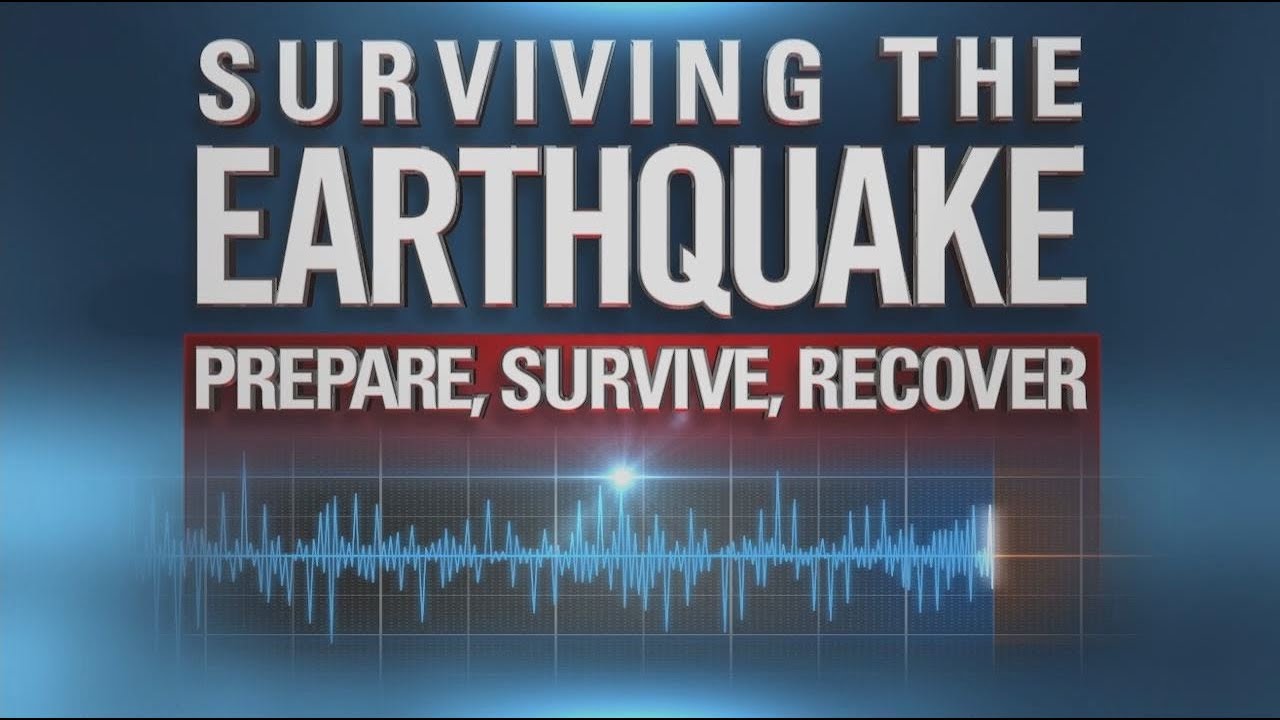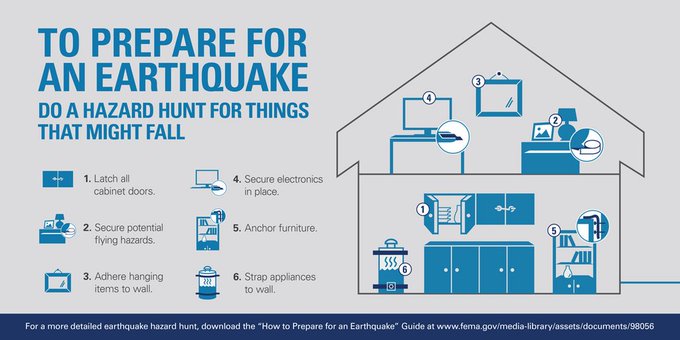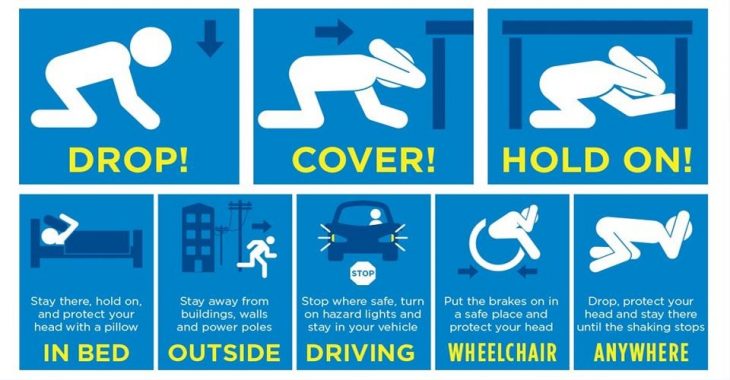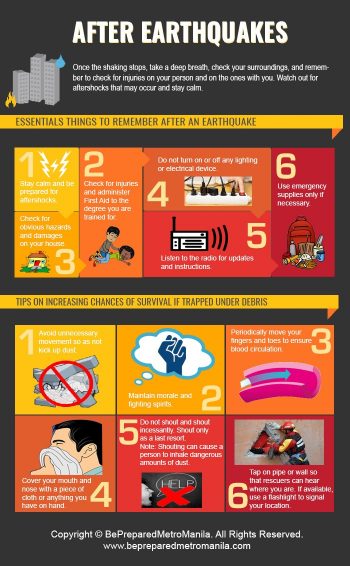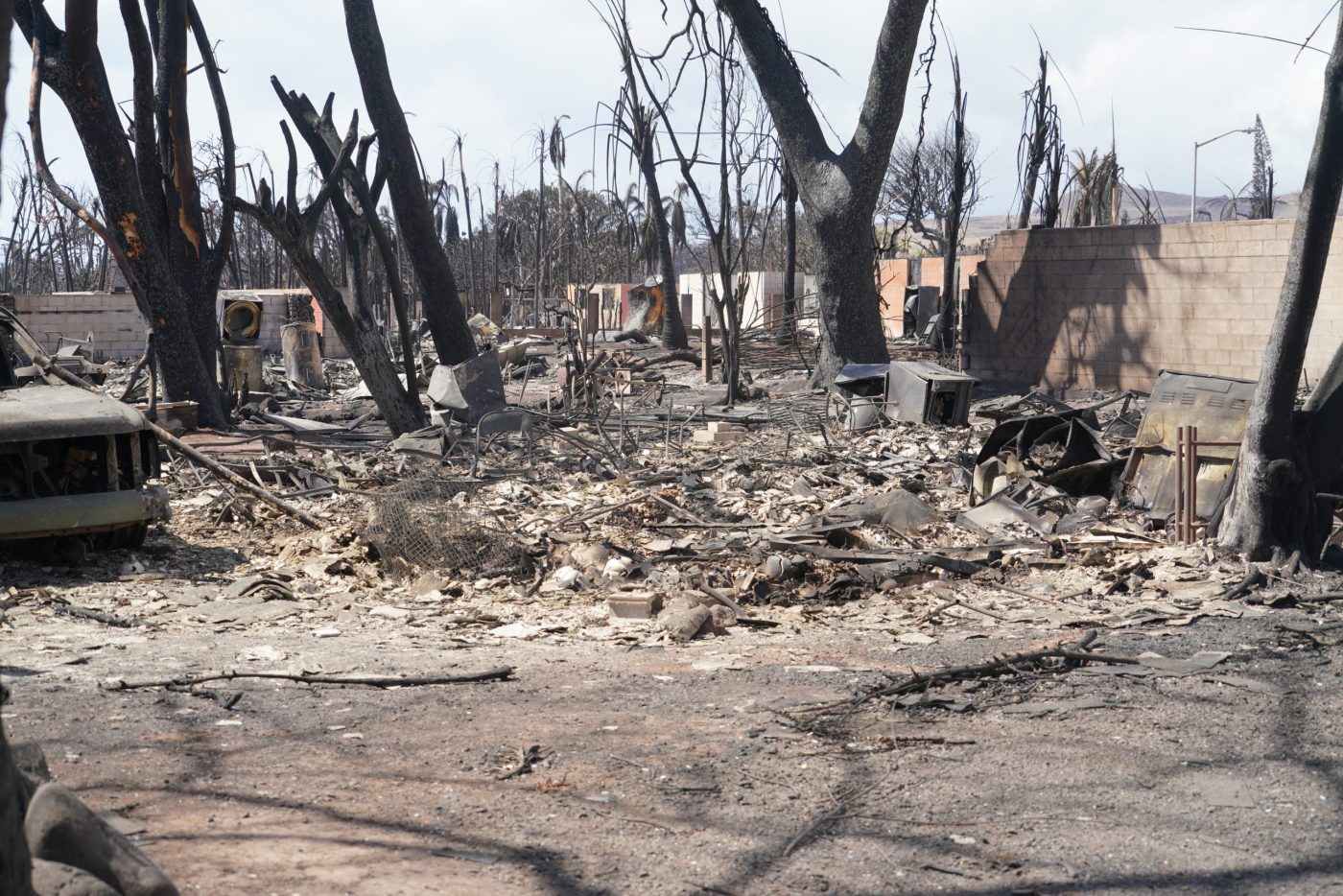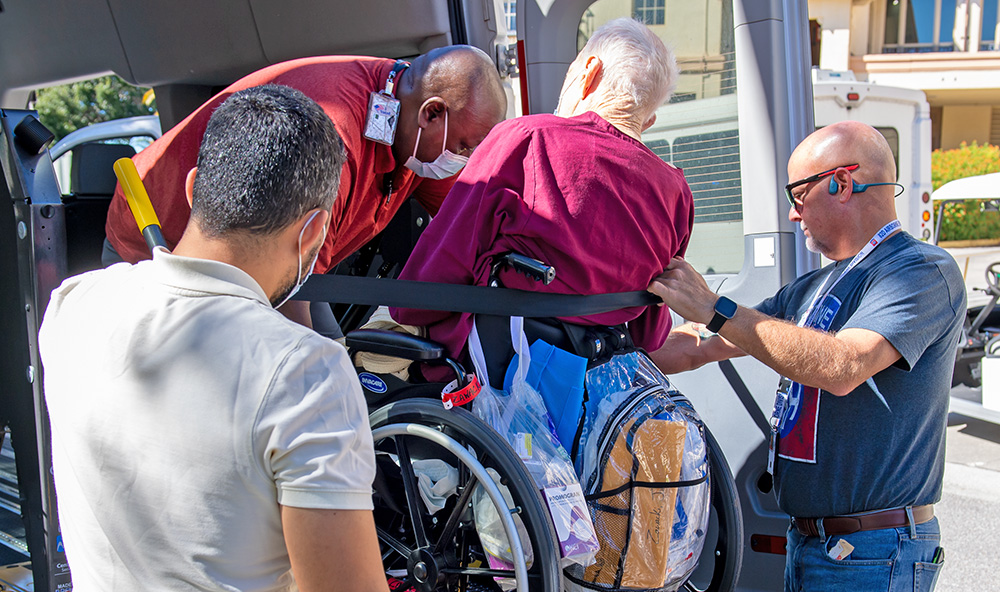When an earthquake strikes, will you know where to take cover? Before the next one hits, there are simple things you can do to save a life and make your environment safe. Earthquakes and aftershocks can happen anywhere without warning, and they can cause fires, tsunamis, landslides and avalanches.
Here are the steps to stay safe before, during and after an earthquake. These tips will make you, your family or your workplace better prepared to survive and recover quickly.
Before an earthquake
- Create an emergency plan and decide how you will communicate with your family during a disaster. A communication plan should have an out-of-state contact and a plan where to meet if you get separated from loved ones or co-workers.
- Make a supply kit that includes enough food and water for several days, as well as a flashlight, a fire extinguisher and a whistle. Organize disaster supplies in convenient locations.
- Minimize financial hardship by organizing important documents.
- Consider earthquake insurance policies. Standard homeowner’s insurance doesn’t cover earthquake damage.
- Practice Drop, cover and hold on. Drop to your hands and knees. Cover your head and neck with your arms. Crawl only as far as needed to reach cover from falling materials. Hold on to any sturdy furniture until the shaking stops.
- Secure your home or workspace by identifying hazards and securing moveable items. Store heavy and breakable objects on low shelves.
During an earthquake
Your level of preparedness will make a difference in how you and others survive and can respond to emergencies. If an earthquake happens, protect yourself right away and do the following if you are in different locations.
After an earthquake
Your level of preparedness will determine your quality of life in the weeks and months that follow. There can be serious hazards, such as damage to a building, leaking gas and water lines, or downed power lines. You are encouraged to take the following actions to recover as soon as possible:
- Be ready to drop, cover and hold on if an aftershock occurs.
- Check yourself for injury. If you need medical attention, contact your health care provider or 911 for instructions.
- If you are in a damaged building, go outside and quickly move away from the building. Do not enter damaged buildings.
- If you are in an area that may experience tsunamis, go inland or to higher ground immediately after the shaking stops.
- Save phone calls for emergencies.
Remember: a natural disaster can happen at any time. Being prepared allows you to reduce the fear, anxiety and losses that accompany disasters. Know your risk for an earthquake in your area and what you must do to stay safe.
For more tips on earthquake preparedness, please click on the following links below:
Drop, Cover, and Hold On – Shakeout
Improve Safety After Earthquake
You Are the Help Until Help Arrives
Kristin Daniel is an emergency management specialist for VA’s Office of Emergency Management & Resilience.
Topics in this story
More Stories
Disaster assistance information has been sent to thousands of Veterans who live in Hawaii.
VA’s Sunshine Healthcare Network took quick action in response to Hurricanes Fiona and Ian including contacting more than 10,000 vulnerable Veterans.
VA Video Connect, My HealtheVet, and other virtual tools can help you access VA care in case of a hurricane or natural disaster.

